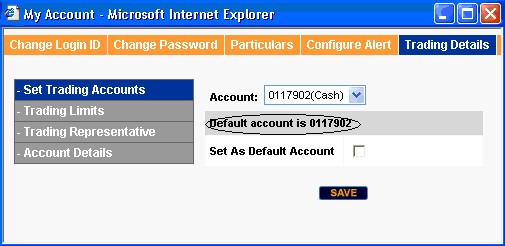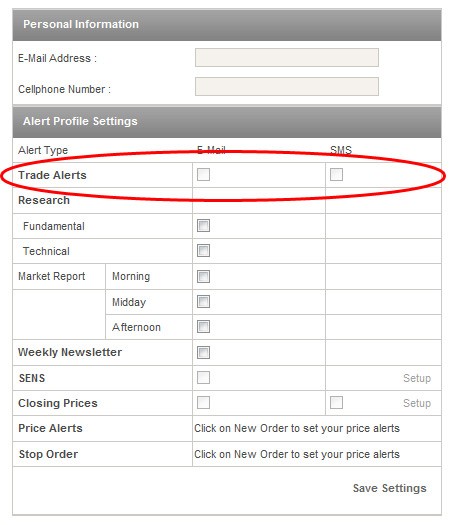Online Trading FAQ
Post on: 16 Март, 2015 No Comment

Smart Investing
Online Trading FAQ
FINRA wants investors to make educated decisions about online trading. We want investors to have reasonable expectations about the possible success of their online trading, and to consider the risks as well as the rewards of employing these promising new investing facilities. Here are frequently asked questions about the basics of online trading:
What is online trading?
Generally, online trading refers to buying and selling securities via the Internet or other electronic means such as wireless access, touch-tone telephones, and other new technologies. With online trading, in most cases customers access a brokerage firm’s Web Site through their regular Internet Service Provider. Once there, customers may consult information provided on the Web Site and log into their accounts to place orders and monitor account activity.
Aren’t online investing and day trading the same thing?
No. Online investing refers to the method of placing orders via the Internet to buy and sell securities as compared to the method of placing orders by speaking directly with a broker by telephone. Day trading refers to a trading strategy where an individual buys and sells the same security in a short period of time (often the same day) in an attempt to profit from small movements in the price of the security.
Can I actually open an account online?
Yes, you can open an account with many brokerage firms online; however, in most instances your account will not be active until the brokerage firm receives and processes a signed application from you. Note that some firms allow for the use of electronic signatures, while others will require a manually (hand written) signed document. Some firms will gather basic information for your account over their Web Sites, then mail you the pre-completed application for you to sign and return. Please make sure to check with your brokerage firm for information on specific guidelines.
Is there still a brokerage firm involved or do I really bypass the broker completely?
All trades involve a brokerage firm even if a stockbroker is not used to help with the trade. Although customers may enter orders for trades via the Internet, customers do not have direct access to the securities markets and therefore must use a brokerage firm in order to execute their trades. Customers should also remember to do their homework where their investments are concerned.
What is the difference between a cash account and a margin account?
Cash accounts are used by customers who pay in full for the cost of the securities purchased. Margin accounts are used by customers who are authorized to borrow part of an investment’s total purchase cost from their brokerage firm. This loan from the brokerage firm to the customer is secured by the value of the securities in the customer’s account. Customers generally use margin to expand their purchasing power. However, customers who use margin also run the risk that if the value of the securities that secure the margin loan declines beyond a certain level, additional money or securities must be deposited to the account in order to make up the value. A brokerage firm may sell part or all of any securities held in the account, without prior notice to the customer, in order to make up the value and meet the margin limit requirements. These margin calls may occur suddenly and investors should take care to understand the financial impact that trading on margin can have on the value of their accounts.
What kinds of securities can I buy online?
You can buy almost any type of stock, bond, or mutual fund online.
What’s the difference between a market order and limit order? Is one better than the other?
With a market order the customer instructs his or her brokerage firm to buy or sell a stock at whatever the price is when the trade is executed, presumably as soon as possible. If the price of the stock is moving quickly and there is a delay in the transmission of the order, then the price at which the customer purchases or sells the stock may be very different than what the customer expected when the order was placed. With a limit order, the customer specifies the price at which he or she is willing to buy or sell. Limit orders can help protect customers from rapid price changes when markets are moving fast. However, there is the risk that the limit order will not be executed. Also note that limit orders usually cost a bit more than market orders.
How do I know my brokerage firm received my order?
High Internet traffic, market volume, and other systems issues may affect your ability to access your account or transmit your orders and may delay receipt of your order by the brokerage firm. Check with your particular brokerage firm on its notification procedures. And note that notification that the order was received does not mean that the order was executed.
Is my order executed immediately?

Orders entered electronically are usually executed quickly; however, there is no assurance that this will always occur. Investors should be aware that high trading volumes can cause delays in executions. Market volatility and delays in executions due to trading volume can result in trade executions at prices significantly different from the quoted price of the security at the time the order was entered. Also, different firms offer different levels of access and system sophistication. The speed of the Internet Service Provider used by an investor may also have an effect on order transmittal and execution. Timing in execution of orders may also be impacted by market volume, order queues at market centers, possible delays in order transmissions by brokers, and other systems issues.
What do the online brokerage rankings mean? If I open an account at a brokerage firm ranked #1, do I have a better chance of making money?
Generally, these rankings indicate the level of customer service or satisfaction with the online brokerage. There are many groups that provide ‘ranking’ services, and investors should keep in mind that these are not regulated entities. Further, different ranking groups use varying criteria and update their data on different schedules. You do not have a better chance of making money at a firm ranked #1 because the rankings do not relate to the likelihood of investment success.
What are the risks of online trading?
There is risk of loss associated with investing in securities regardless of the method used. New investors need to understand the principles of investing, their own risk tolerance, and their investment goals before venturing into the market. In addition, online investors may want to consider these other risks. High Internet traffic may affect online investors’ ability to access their account or transmit their orders. Online investors should be skeptical of stock advice and tips provided in chat rooms or bulletin boards. Investors should do their own research before acting on these tips. Also, for some online investors, there is a temptation to overtrade by trading too frequently or impulsively without considering their investment goals or risk tolerance. Overtrading can effect investment performance, raise trading costs, and complicate your tax situation.
What does it mean to ‘trade on margin’?
If a customer chooses to borrow funds from a firm, the customer will open a margin account with that firm. The portion of the purchase price that the customer must deposit is called margin and is the customer’s initial equity in the account. The loan from the firm is secured by the securities that are purchased by the customer. Customers generally use margin to leverage their investments and increase their purchasing power. At the same time, customers who trade securities on margin incur the potential for higher losses; therefore, customers should make sure they clearly understand this concept before opening a margin account and entering the investing arena. For more information, including a specific example, click here.
Where can I get more information?
We have published guidance and other information for members and investors on the issue of online investing, as well as information about what to look out for when investing in general.
General Investor Information














